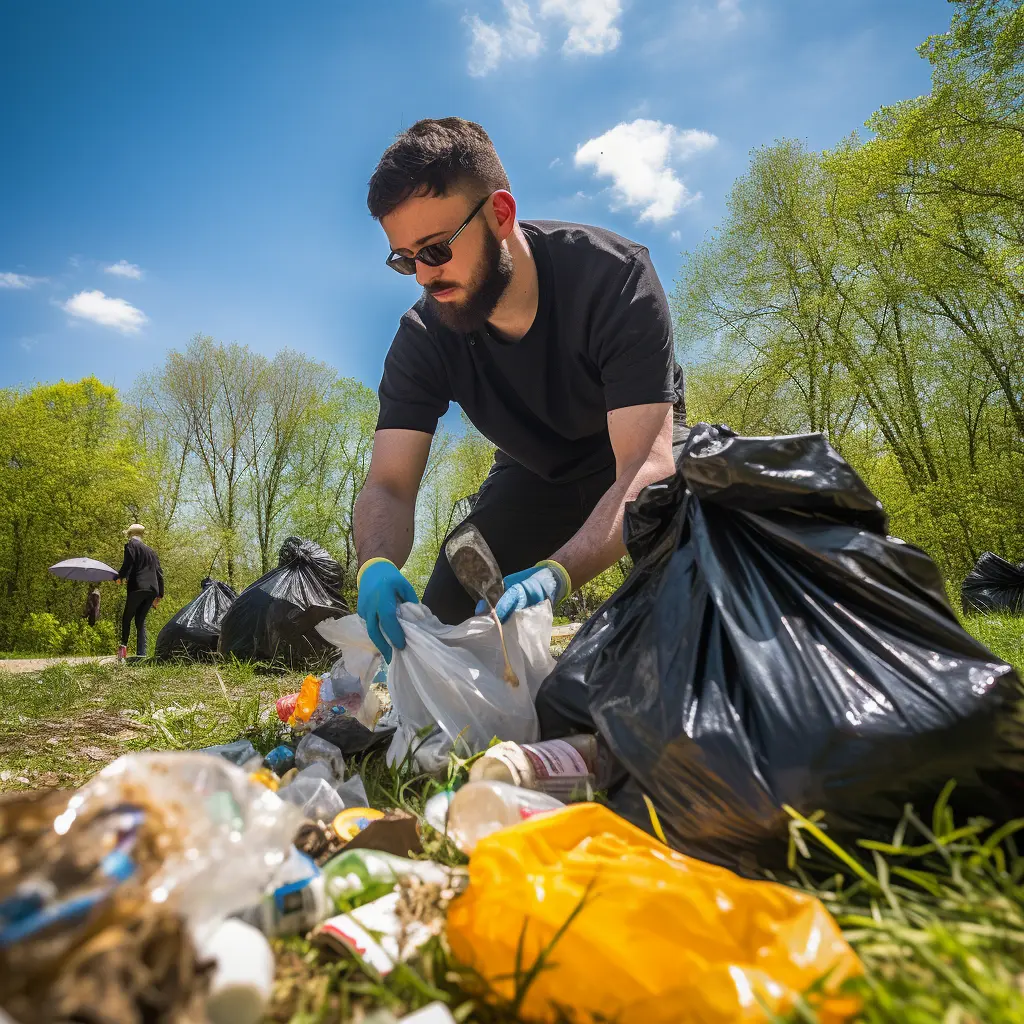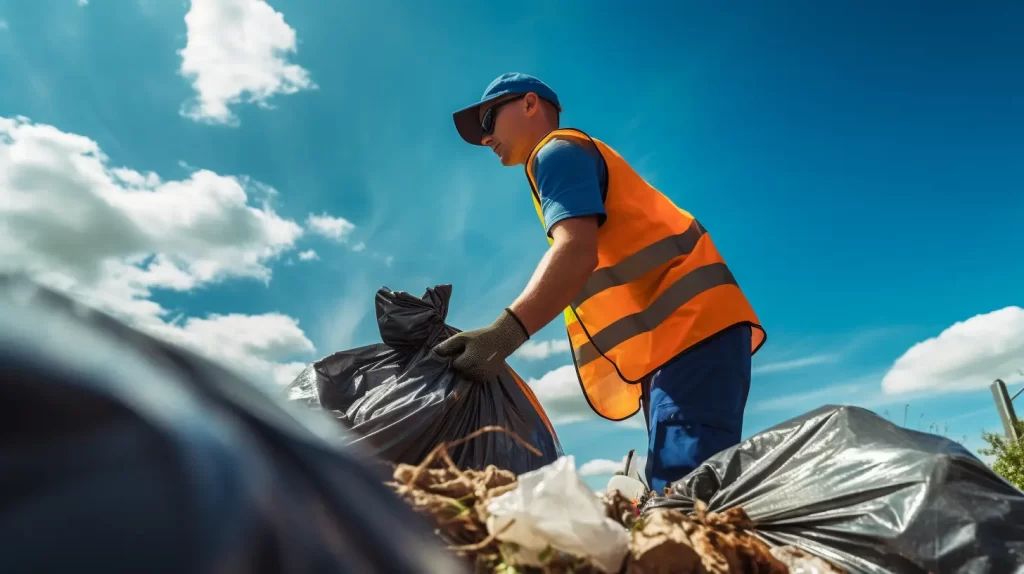Rubbish removal in Perth is governed by a robust regulatory framework designed to ensure efficient waste management and environmental protection. Local, state, and federal regulations work in concert to provide comprehensive guidelines for the collection, disposal, and recycling of waste. This article explores the key aspects of these regulations, the compliance requirements for rubbish removal companies, and the crucial role played by the Department of Water and Environmental Regulation (DWER) in overseeing waste management practices.

Overview of Local, State, and Federal Regulations Governing Rubbish Removal in Perth
Rubbish removal in Perth is governed by a comprehensive framework of local, state, and federal regulations aimed at ensuring efficient waste management and environmental protection. This multi-tiered approach ensures that all aspects of waste management are addressed comprehensively, from collection to disposal and recycling.
Local Regulations
At the local level, the City of Perth has enacted specific bylaws to regulate waste collection, disposal, and recycling practices within its jurisdiction. These bylaws mandate the segregation of waste into distinct categories such as general waste, recyclables, and hazardous materials. Each category has specific guidelines for disposal:
- General Waste: Includes everyday household waste that cannot be recycled. It must be placed in designated bins for regular collection.
- Recyclables: Items such as paper, cardboard, glass, and certain plastics must be separated from general waste and placed in recycling bins.
- Hazardous Materials: Items that pose a risk to health or the environment, such as chemicals, batteries, and electronic waste, require special handling and disposal methods.
These local regulations are enforced to ensure that waste is managed in a way that minimises environmental impact and promotes public health and safety. Local councils also provide education and resources to residents to promote compliance and effective waste management practices.
State Regulations
At the state level, the Environmental Protection Act 1986 and the Waste Avoidance and Resource Recovery Act 2007 are the primary legislations overseeing waste management in Western Australia.
- Environmental Protection Act 1986: This act sets out requirements for managing waste to prevent environmental harm. It includes provisions for the licensing of waste facilities, monitoring of waste disposal practices, and enforcement of environmental standards.
- Waste Avoidance and Resource Recovery Act 2007: This act focuses on promoting waste reduction, resource recovery, and recycling. It establishes the framework for developing waste management plans, setting recycling targets, and encouraging the reduction of waste generation at the source.
Together, these acts ensure that waste management practices in Perth align with broader environmental goals and sustainability principles. The state government also supports local initiatives through grants and programs aimed at improving waste management infrastructure and technologies.
Federal Regulations
Federally, the National Waste Policy provides a framework for waste management across Australia, setting out strategies and targets for reducing waste, increasing recycling rates, and minimising the impact of waste on the environment. The policy focuses on several key areas:
- Reducing Waste: Encouraging waste prevention and minimisation at the source.
- Increasing Recycling: Promoting the recovery of valuable resources from waste materials.
- Improving Waste Data: Enhancing data collection and reporting to inform waste management decisions.
- Product Stewardship: Encouraging manufacturers to take responsibility for the lifecycle of their products, including end-of-life disposal.
In addition to the National Waste Policy, the National Environment Protection Measures (NEPMs) provide additional standards and guidelines for managing various types of waste, including hazardous waste. These measures ensure that waste is managed consistently across all states and territories, providing a cohesive national approach to waste management.
Key Compliance Requirements for Rubbish Removal Companies
Rubbish removal companies in Perth must adhere to several key compliance requirements to operate legally and effectively. These requirements encompass obtaining necessary licences and permits, adhering to waste management plans, ensuring staff training and certification, complying with occupational health and safety regulations, and maintaining environmental standards.
Licences and Permits
Obtaining the necessary licences and permits is the first step for rubbish removal companies. These are issued by relevant authorities, such as the Department of Water and Environmental Regulation (DWER) and local councils. The licences typically cover:
- General Waste Collection: Authorisation to collect and transport general household and commercial waste.
- Hazardous Waste Management: Special permits required for handling, transporting, and disposing of hazardous waste materials like chemicals, electronic waste, and medical waste.
- Recycling Operations: Permits for operating recycling facilities or transporting recyclables to designated centres.
Adhering to these licensing requirements ensures that companies operate within the legal framework and are subject to regular inspections and audits by regulatory bodies.
Compliance with Waste Management Plans
Rubbish removal companies must comply with waste management plans and policies established by regulatory authorities. These plans provide detailed guidelines on various aspects of waste management:
- Waste Collection: Procedures for the systematic collection of different waste types, ensuring proper segregation at the source.
- Transportation: Guidelines for safely transporting waste to disposal or recycling facilities, including vehicle requirements and route planning to minimise environmental impact.
- Disposal: Methods and procedures for disposing of different waste types, ensuring compliance with environmental standards and minimising landfill use.
Compliance with these plans is crucial for ensuring efficient and environmentally responsible waste management practices.
Staff Training and Certification
Proper training and certification of staff are essential for handling different types of waste, particularly hazardous materials. Key training requirements include:
- Hazardous Waste Handling: Training on the safe handling, storage, and transportation of hazardous waste to prevent accidents and environmental contamination.
- Recycling Processes: Education on proper sorting and recycling techniques to maximise resource recovery and minimise waste.
- Safety Protocols: Comprehensive training on occupational health and safety regulations to protect workers from potential hazards associated with waste management activities.
Companies must ensure that their staff receive ongoing training to stay updated on the latest regulations and best practices.
Occupational Health and Safety Regulations
Compliance with occupational health and safety (OHS) regulations is crucial to protect workers involved in rubbish removal activities. Key aspects include:
- Protective Equipment: Providing workers with appropriate personal protective equipment (PPE) such as gloves, masks, and safety vests.
- Safety Procedures: Implementing and enforcing safety procedures for waste collection, transportation, and disposal activities.
- Emergency Response: Preparing and training staff for emergency situations, such as chemical spills or accidents, to ensure swift and effective response.
Adherence to OHS regulations helps minimise the risk of workplace injuries and ensures a safe working environment for all employees.
Environmental Compliance
Environmental compliance is another critical aspect for rubbish removal companies. This involves implementing measures to prevent pollution and minimise environmental impact. Key requirements include:
- Waste Segregation and Recycling: Adhering to guidelines for segregating waste at the source and ensuring maximum recycling of materials.
- Safe Disposal of Hazardous Waste: Following strict procedures for the safe disposal of hazardous waste to prevent environmental contamination.
- Pollution Prevention: Implementing practices to reduce emissions, spills, and other forms of pollution during waste management activities.
Regular reporting and record-keeping are mandatory to demonstrate compliance with environmental regulations. Companies must maintain detailed records of waste collected, transported, and disposed of, as well as recycling activities and any incidents of non-compliance. These records are subject to review by regulatory authorities during audits and inspections.
The Role of the Department of Water and Environmental Regulation (DWER) in Overseeing Waste Management Practices

The Department of Water and Environmental Regulation (DWER) plays a crucial role in overseeing waste management practices in Perth. As the primary regulatory body, DWER ensures that rubbish removal companies comply with legislative requirements, particularly the Environmental Protection Act 1986 and the Waste Avoidance and Resource Recovery Act 2007. This oversight is vital for maintaining environmental integrity and promoting sustainable waste management practices.
Enforcement of Environmental Legislation
DWER is responsible for enforcing key environmental legislation, including:
- Environmental Protection Act 1986: This act mandates the prevention of environmental harm from waste management activities. DWER ensures compliance through inspections, monitoring, and enforcement actions.
- Waste Avoidance and Resource Recovery Act 2007: This legislation focuses on reducing waste, increasing recycling, and promoting resource recovery. DWER oversees the implementation of these objectives through policy development and regulatory oversight.
Issuing Licences and Permits
DWER’s role includes issuing licences and permits to rubbish removal companies. These licences are necessary for legally operating waste management activities, including:
- Collection and Transport Licences: Authorisation for companies to collect and transport different types of waste.
- Facility Operation Permits: Permits required for operating waste management facilities, including landfills, recycling centres, and hazardous waste disposal sites.
DWER ensures that applicants meet all regulatory requirements before issuing these licences, contributing to the safe and efficient management of waste.
Inspections and Audits
Regular inspections and audits are conducted by DWER to monitor compliance with waste management regulations. These activities involve:
- Site Inspections: On-site visits to waste management facilities to assess operational practices and environmental impact.
- Compliance Audits: Detailed evaluations of a company’s adherence to licensing conditions, environmental standards, and waste management policies.
Through these inspections and audits, DWER identifies non-compliance issues and enforces corrective actions to mitigate environmental risks.
Enforcement Actions
When rubbish removal companies violate waste management regulations, DWER takes enforcement action to address these breaches. Enforcement measures may include:
- Fines and Penalties: Imposing financial penalties for non-compliance with regulatory requirements.
- Operational Restrictions: Implementing restrictions on a company’s operations until compliance is achieved.
- Prosecution: Pursuing legal action against companies that commit serious or repeated violations of waste management laws.
These enforcement actions are essential for maintaining regulatory standards and protecting the environment.
Guidance and Support
DWER provides guidance and support to rubbish removal companies to help them comply with regulations and adopt best practices in waste management. This support includes:
- Advisory Services: Offering expert advice on waste minimisation, recycling, and safe disposal of hazardous materials.
- Training Programs: Conducting training sessions and workshops to educate companies on regulatory requirements and best practices.
- Resource Materials: Providing manuals, guidelines, and other resources to assist companies in implementing effective waste management strategies.
By offering this support, DWER helps companies enhance their waste management practices and achieve compliance more effectively.
Policy Development and Implementation
DWER is actively involved in the development and implementation of waste management policies and strategies at the state level. This involves:
- Strategic Planning: Collaborating with local councils, industry stakeholders, and community groups to develop comprehensive waste management plans.
- Policy Formulation: Creating policies that promote sustainable waste management practices, including waste reduction, recycling, and resource recovery.
- Implementation Oversight: Monitoring the implementation of waste management policies to ensure alignment with state and national objectives.
DWER’s policy initiatives contribute to the overall improvement of waste management practices in Perth.
Public Education and Awareness
Public education and awareness are key components of DWER’s role in waste management. The department:
- Information Campaigns: Runs campaigns to inform residents and businesses about their responsibilities in waste management.
- Educational Resources: Provides materials and resources to promote recycling and waste reduction.
- Community Engagement: Engages with the community through workshops, events, and outreach programs to encourage active participation in sustainable waste management.
By raising public awareness, DWER fosters a culture of environmental responsibility and supports the broader goals of waste reduction and recycling.
Conclusion
In conclusion, the regulatory framework for rubbish removal in Perth is designed to promote sustainable waste management and environmental protection. Compliance with local, state, and federal regulations is essential for rubbish removal companies to operate effectively and responsibly. The Department of Water and Environmental Regulation (DWER) plays a vital role in enforcing these regulations and supporting companies in their waste management efforts. For residents and businesses in Perth seeking reliable and compliant rubbish removal services, Swann Rubbish Removal stands out as the best rubbish removalist in Perth, committed to excellence and sustainability in waste management.